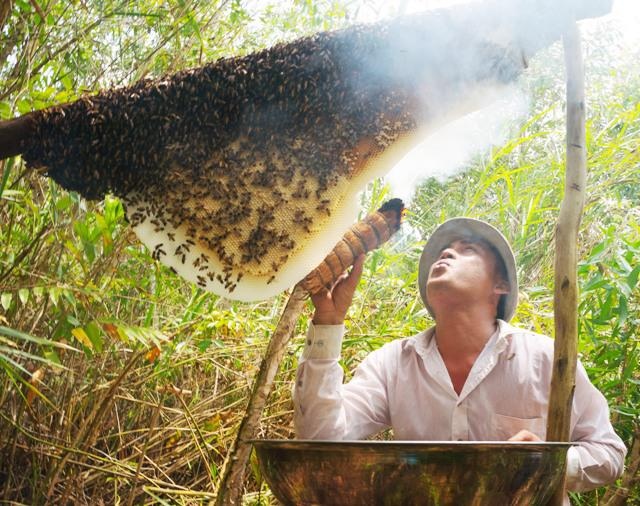US makes drastic cut on anti-dumping duties for Vietnam’s honey
US makes drastic cut on anti-dumping duties for Vietnam’s honey
The move would open the door for Vietnamese honey to continue being exported to the US.
The US Department of Commerce (DOC) has decided to slash the anti-dumping duty on Vietnam’s honey from 410.93-413.99% to 58.74-61.27%, equivalent to a seven-fold cut compared to its preliminary conclusion.

Harvesting honey bee in Ca Mau. Photo: The Hanoi Times |
The move came as part of the DOC's latest assessment of the anti-dumping duties on honey imported from Vietnam, India, Argentina, and Brazil, which opens the door for Vietnamese honey to continue being exported to the US.
The Trade Remedies Authority of Vietnam (TRA) under the Ministry of Industry and Trade (MoIT) noted the result showcased the active role of the domestic honey production sector in cooperating with US authorities.
While the DOC has adjusted its calculation of the duties, the MoIT, however, noted the new tariffs have not reflected the actual honey production practice in Vietnam.
In the US, a probe into anti-dumping cases would be jointly conducted by the DOC and the US International Trade Center (ITC), for which the latter is scheduled to give its verdict on May 23.
The MoIT said it would continue to work with the US counterparts in upcoming procedures to ensure Vietnam’s honey is treated fairly under the regulations of the World Trade Organization (WTO).
“This is to ensure the lawful rights of Vietnamese honey exporters,” stated the ministry.
The MoIT added it is supporting local firms in expanding their export market via free trade agreements (FTAs) that Vietnam is a part of, along with promoting domestic consumption.
Vietnam currently has 40,000 households practicing apiculture, along with hundreds of companies specializing in the bee honey trade.
Every year, Vietnam’s honey exports to the US account for 90% of the total honey turnover.
Statistics from the ITC showed Vietnam exported 56,133 tons of honey to the US for US$82.1 million in 2021.

























